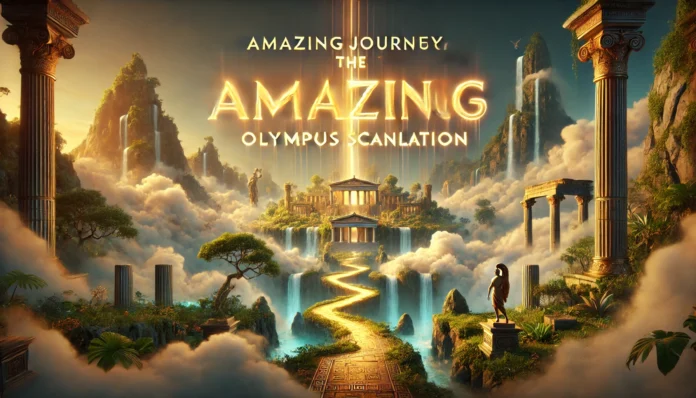Scanlation, the practice of translating and editing manga from Japanese into other languages, has been a cornerstone of global manga fandom for decades. Within this subculture, numerous fan-driven groups emerge and disappear, leaving behind a legacy of translated works.
One of the more prominent and revered names in the scanlation community is OLYMPUS SCANLATION. We will explore the origins, influence, and lasting impact of Olympus Scanlation.
The Birth of Olympus Scanlation
Like many scanlation groups, Olympus Scanlation began with a simple but passionate goal to bring beloved Japanese manga to non-Japanese readers. Founded in the early 2000s, Olympus Scanlation quickly rose to prominence in the scanlation community thanks to its ability to combine high-quality translations, top-tier editing, and a strong dedication to authenticity in its work.
Its focus was on providing English-speaking audiences access to manga that had not been licensed or was unlikely to be licensed for official translation.
Scanlation groups typically rely on the collaborative efforts of a team of translators, editors, proofreaders, and typesetters who work together to produce the translated manga. Olympus Scanlation was no different in this regard, but it distinguished itself through its attention to detail and the quality of its releases. The group became especially known for the care it took in preserving the nuances of the original Japanese language while making the translations accessible to an English-speaking audience.
This authenticity was particularly appreciated by manga enthusiasts who prized the faithfulness of translations, which could often get lost in less experienced hands.
The Types of Manga Translated
Olympus Scanlation did not limit itself to any one genre of manga but instead focused on a variety of titles, ranging from action-packed shounen to thought-provoking seinen works. This diverse approach allowed the group to cultivate a broad and dedicated fanbase, with different tastes catered to by the team’s efforts. Some of the most notable manga series that were translated by Olympus Scanlation include Hellsing, Berserk, and Black Lagoon.
Each of these series not only resonated with fans due to their compelling storylines and complex characters but also became emblematic of the type of high-quality scanlations that Olympus was known for.

For example, Hellsing, a gothic horror-action series by Kouta Hirano, has a heavy reliance on cultural and historical references that require a delicate balance between retaining the Japanese tone and making it comprehensible for an international audience. Olympus Scanlation’s take on Hellsing was highly praised for its ability to preserve the dark, intense atmosphere of the manga while offering clear and culturally accurate translations.
The Ethics of Scanlation and Olympus’s Role
One of the most contentious aspects of scanlation, including groups like Olympus, is its ethical implications. While fans might praise scanlations for making manga more accessible, critics argue that scanlation can harm the manga industry by undermining the market for licensed English releases. This is particularly significant when it comes to the work of professional translators and publishers who depend on licensed contracts to distribute manga officially.
Olympus Scanlation, however, was often seen as a group that operated with a certain level of respect for the original creators and their work. While scanlation itself operates in a legally grey area, many groups, including Olympus, sought to keep their releases available for free, without any profit motive, as a means to raise awareness of series that may not have had the same level of exposure otherwise.
The Decline of Scanlation and Olympus’s Legacy
As the global manga market grew, more and more manga series began to be officially licensed for English-speaking audiences. The success of publishers such as VIZ Media, Kodansha, and Yen Press helped to bring many manga series into mainstream markets. With this increased availability of official translations, many scanlation groups, including Olympus, found themselves with less demand for their services.
Moreover, the increasing pressure from publishers and copyright holders to curb piracy led to more stringent legal action against scanlation groups. Despite these challenges, Olympus Scanlation continued to hold a significant place in the hearts of manga fans. For many, Olympus represented a time when the community was defined by the passion of fans who did the work not for profit, but for the love of the medium.
Conclusion
Olympus Scanlation’s story is one of passion, community, and a love for manga. By providing high-quality translations of some of the most beloved manga series, the group bridged the gap between Japan and the rest of the world, allowing international fans to enjoy manga that may never have reached them otherwise.
Though the practice of scanlation is still controversial, groups like Olympus helped to shape the global manga landscape, and their legacy continues to influence how manga is consumed and appreciated by fans worldwide. In the end, Olympus Scanlation’s impact on the world of manga can be seen in both the deepened understanding of Japanese culture among international audiences and the growth of the manga industry as a whole.


